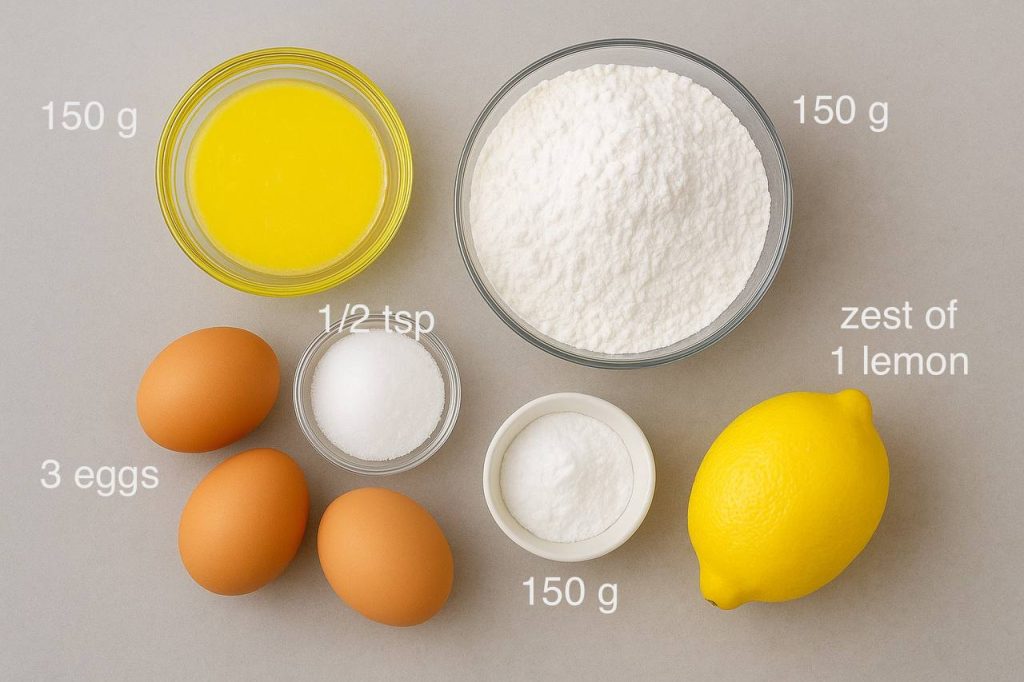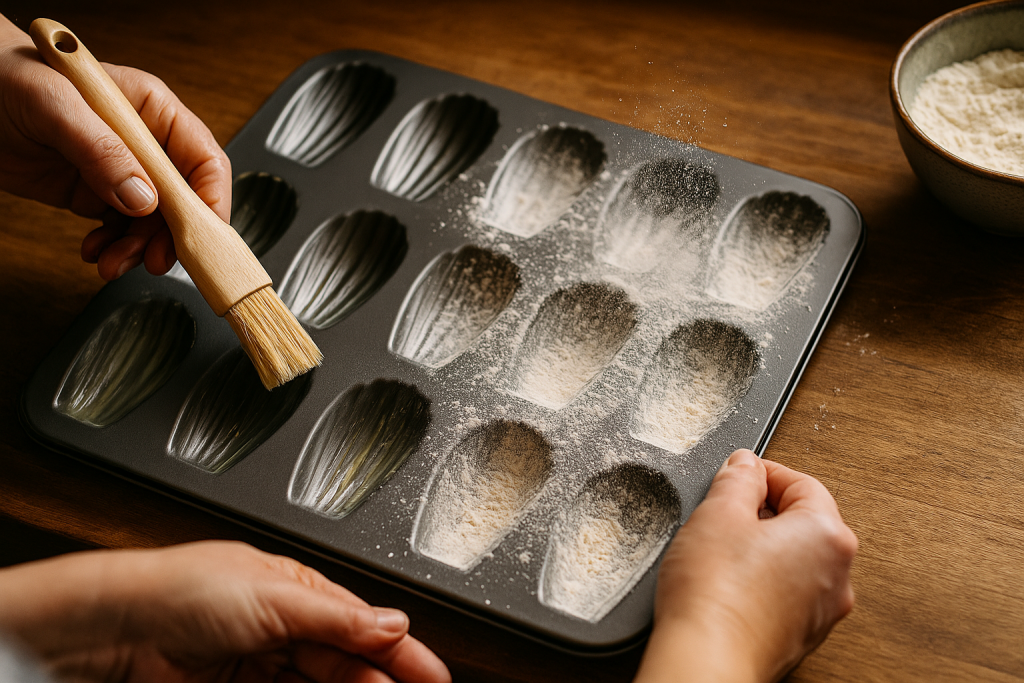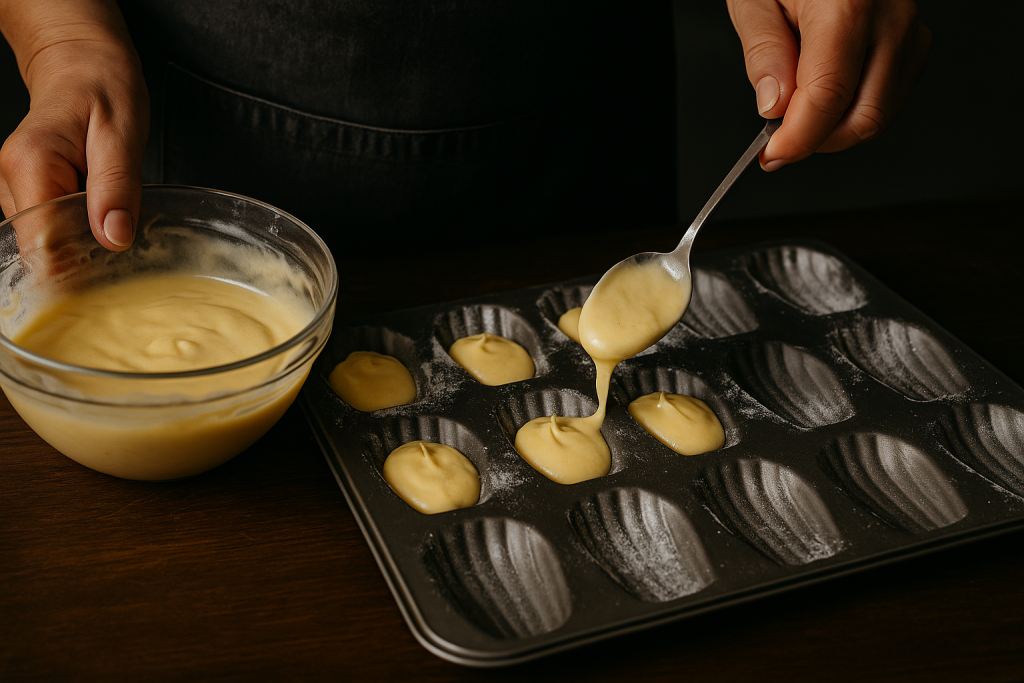Madeleine Recipe Mary Berry – A No-Fuss Guide That Actually Works
Why Mary’s Version Delivers
Mary Berry’s French madeleines are simple on paper – and that’s the point. Her formula leans on self-raising flour with a little baking powder, plus melted butter, eggs, sugar and lemon zest. No genoise theatrics. No bain-marie. Just a quick batter that bakes into shells with a gentle hump when you handle it right.
Two moves matter. First, butter and flour the tray so the ridges release cleanly. Second, chill the batter, then bake hot. The chill helps hydration and slows spread; the heat kickstarts lift. That duo is your best shot at the classic rise.

Ingredients – and Why They’re There
- 150g butter, melted and cooled – richness and the classic edge. Warm, not hot, or you’ll flatten the batter.
- 150g self-raising flour – built-in lift without faff.
- 150g caster sugar – fine enough to whip in easily.
- 3 eggs (room temperature) – structure and steam.
- ½ tsp baking powder – extra nudge for the hump.
- Finely grated zest of 1 lemon – brightness without sourness.
- Icing sugar, to dust (optional)
That list tracks with Mary’s “Baking Bible” – style madeleines as reproduced by cooks who’ve baked straight from the book. It’s a reliable map.

Pan Prep That Saves Your Shells
Brush the moulds with melted butter, then dust with flour and tap out the excess. It’s old-school and it works. Skipping this step is how you end up prising cakes out with a knife and crying into the crumbs. Mary’s method is clear on this part.

The Hump – What Really Causes It
Short version – cold batter, hot tin, hot oven. Chilling lets starch hydrate and firms the butter. When the batter hits heat, the outer sets while the centre expands and domes. Food-science explainers and pro bakers agree: the chill–then-blast approach gives you taller humps and crisper edges.
Step-By-Step – Mary’s Style, Streamlined
- Preheat to 200°C/180°C fan – hot, but not scorch-level. Grease and flour a 12-hole madeleine tray.
- Whisk eggs + sugar until pale and thick – a soft ribbon is enough.
- Fold in the flour, baking powder and lemon zest. Go gently – keep the air.
- Stream in butter around the bowl and fold until just combined.
- Chill 30–60 minutes. Longer is fine; overnight gives even cleaner edges. Don’t let the butter set rock-hard or you’ll lose height.
- Fill moulds to just below the rim. Too much batter kills the lines.
- Bake 8–10 minutes until golden at the ridges and springy in the centre. Turn out after 1–2 minutes. Dust when cool.

Common Mistakes – and Fast Fixes
Problem – Why – Fix
- No hump – warm batter, timid heat – chill batter, use a hot oven.
- Sticking – unprepared pan – butter and flour the moulds.
- Greasy crumb – butter too hot – cool it before folding.
- Blobby edges – overfilled tray – fill just under the rim.
Variations That Don’t Break the Structure
- Orange + vanilla – swap zest, add ¼ tsp vanilla.
- Almond-kissed – a drop of almond extract; keep it light.
- Gluten-free – use a reputable self-raising GF blend, chill a bit longer to help it set before spread.
- Chocolate dip – set half-dips on parchment. Looks fancy, costs nothing in effort.
Keep the ratios the same. Tinker with flavour, not the bones.
Timing, Storage, Serving
Madeleines peak fast – that’s their charm. Best within a day. After that, they’re still good, just less ethereal.
- Room temp: airtight tin, same day is ideal.
- Next days: brief 5-second microwave softens the crumb.
- Freeze: plain, up to 3 months. Thaw, then dust.
Serve with Earl Grey, lemon curd, or a white-chocolate drizzle if you must. I prefer them unadorned – a small cake that knows when to stop.
If Yours Still Sulk
Be blunt with the process. Weigh ingredients. Use room-temperature eggs. Don’t rush the fold. Chill the batter. Bake hot. Most flat, rubbery batches are heat and handling, not fate. The “hump mystique” isn’t mystique – it’s physics and patience. SeriousEats spells it out, and bakers hammer the same rule: cold batter, hot blast.
One Last Word On Source And Method
Mary’s “Baking Bible” rendition has been cooked and re-cooked for years, with consistent ingredient lists and pan prep across independent write-ups. That’s why it’s a safe base to learn the move – then make it yours.
